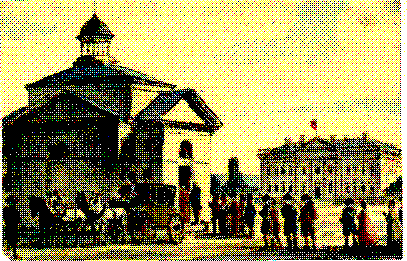"About twelve o'clock the President was awaited
224
upon by the heads of Departments and other officers,
civil and military, foreign diplomatic characters,
strangers of distinction, the Cherokee chiefs at Present
on a mission to the seat of government and most of the
respectable citizens of Washington and George-Town.
"The First Magistrate received the cordial felicitations of his fellow citizens on the return of the anniversary, with unfeigned satisfaction; and though adulation offered no ostentatious homage to power, yet all
felt the inspirations of patriotic gratitude on contemplating in the midst of them the man, whose pen had
traced, whose counsels had recommended, and whose
firmness and talents had cooperated to establish the
Declaration of Independence."
Col. W. W. Burrows, at the head of the Marine Corps,
saluted the President at the Mansion House, "while a
band of music played with great precision and with insplrlng animation the President's march." The Marines drilled in the square, "fired sixteen rounds in platoons,
and concluded with a general feu-de-joie,'' The Marine
Band continued to play at intervals during the morning,
while President Jefferson served refreshments to the assembled company; and from that day to this its musical
story has been part of the history of the Presidents, and
the celebrated house they have occupied in Washington.
Contents | Peace Park Page

